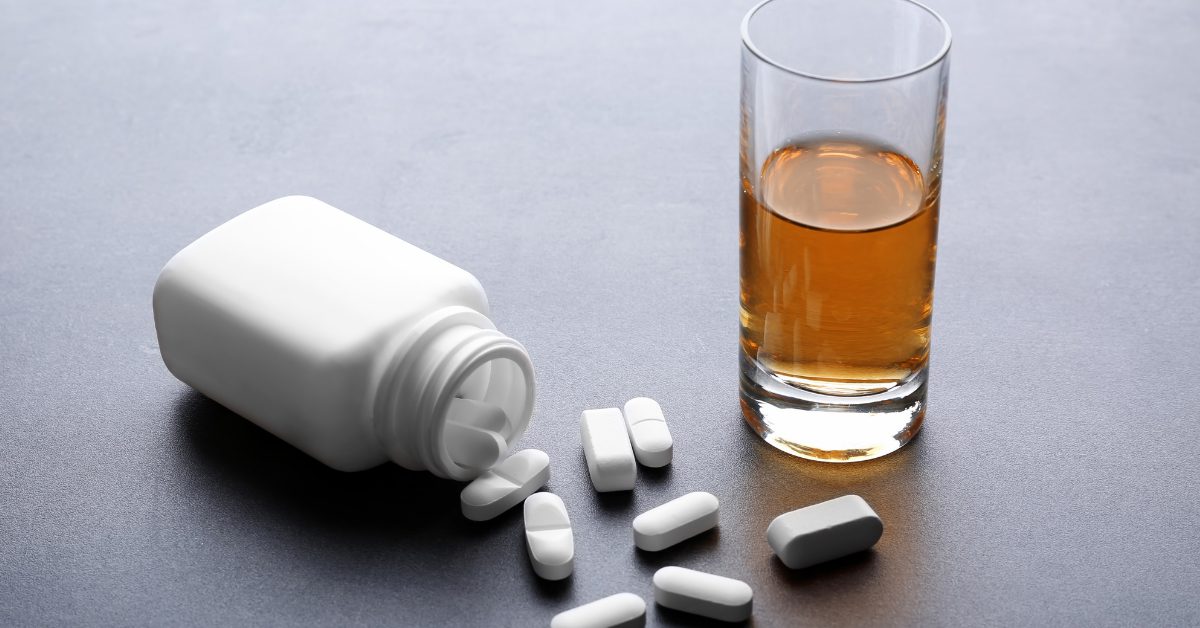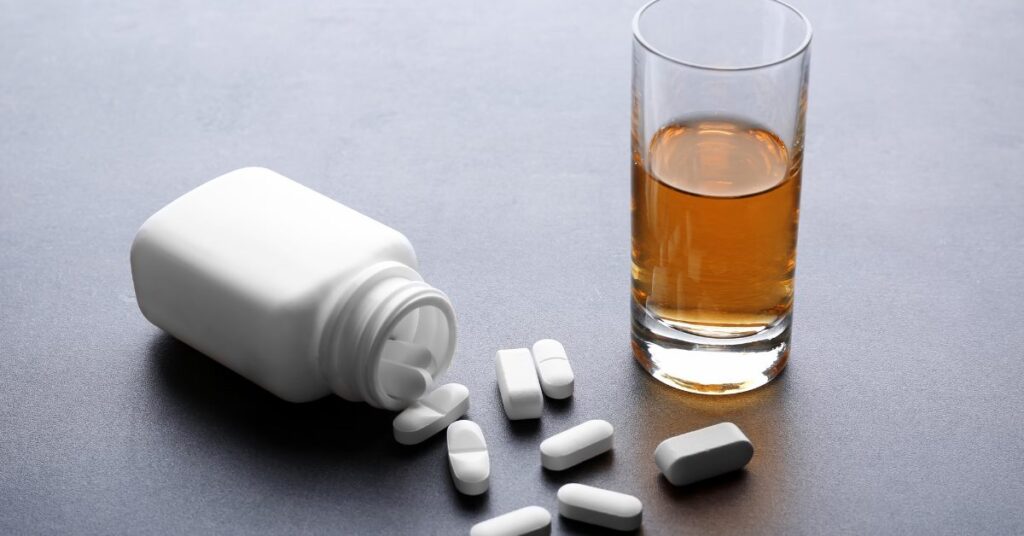Are Ambien and Alcohol a Dangerous Mix?
It is never a good idea to mix pills with alcohol. How dangerous is it to mix Ambien with alcohol? What could happen from this mixture?
Ambien and alcohol can both be dangerous substances on their own, but when a person takes them together, the risks can be life-threatening. If you or someone you know may be mixing Ambien and alcohol, the combination can come with several side effects, drug interactions, and risks. Ambien is a sleeping aid used for the short-term treatment of insomnia. It can be a dangerous drug all by itself, but when a person chooses to mix Ambien with alcohol, the risk of adverse side effects becomes even more severe.
11.3% of individuals diagnosed with a substance use disorder have concurrent alcohol and other drug use disorders. (NIH)

What is Ambien?
The pharmaceutical name for Ambien is Zolpidem. It is used to treat insomnia and other conditions that cause difficulty falling asleep or staying asleep. Zolpidem belongs to a class of medications called sedative-hypnotics. It works by slowing activity in the brain to allow sleep. Unfortunately, additional severe sleep disorders are possible with Zolpidem.
In some cases, people who took Zolpidem got out of bed and drove their cars, cooked then ate food, made phone calls, sleep-walked, or did other things while still asleep. Upon waking up, these people could not recall what they had done. Ambien is an addictive sleep medication often abused with alcohol and other drugs or medications.
What Happens To You When You Combine Alcohol and Ambien?
Initially, anyone who uses both will feel sleepy, uncoordinated, and disoriented. Each of these substances is a central nervous system depressant, and the combination of two CNS depressants intensifies the harmful effects of each other. Ambien and alcohol can cause health emergencies and cause the person not to remember what they did while on the mixture, including calling relatives or friends, leaving the house undressed, or going on the internet and buying expensive purchases.
Additionally, anyone who is prescribed Ambien by a doctor is always told NOT to drink alcohol as the following is likely to occur:
- Uncontrollable shaking
- Slowed heartbeat
- Trouble breathing
- Hallucinations
- Vomiting
- Nausea
- Fainting
- Memory loss
- Accidental Overdose
What Do Experts Say About this Combination?
The research about Ambien and alcohol is startling. The effects of each substance cause similar reactions. Therefore, it is obvious that combining two substances that do the same thing is hazardous.
The clinical features of sedative intoxication are similar to alcohol intoxication. Psychiatric manifestations include impaired attention, inappropriate behavior, labile mood, and impaired judgment. Physical signs include nystagmus, decreased reflexes, and unsteady gait. As the amount consumed increases, especially beyond the established tolerance of an individual, progressively more impairment occurs in judgment and brain function. A study of zolpidem misuse showed that hospital admission was common when Zolpidem was ingested with other medications or alcohol and resulted in intensive care unit admission in nearly half of cases. (NCBI)
Treatment for Ambien and Alcohol Abuse Must be Evidence-based
The mixing of Ambien and Alcohol signifies abuse and addiction. We have been connecting expert-led evidence-based treatment programs for our patients for decades. We are here to help you overcome the need to use Ambien and alcohol to sleep or escape. The research has shown that anyone who uses drugs and alcohol is trying to self-medicate.
Let us get you the therapy you require so you don’t need to use substances. Additionally, many people with sleep disorders need behavioral therapy to help them achieve quality sleep by minimizing depression, anxiety, and stress. So call for help and to be admitted today.
Call now for immediate access to evidence-based treatment and therapy within 24 hours.


